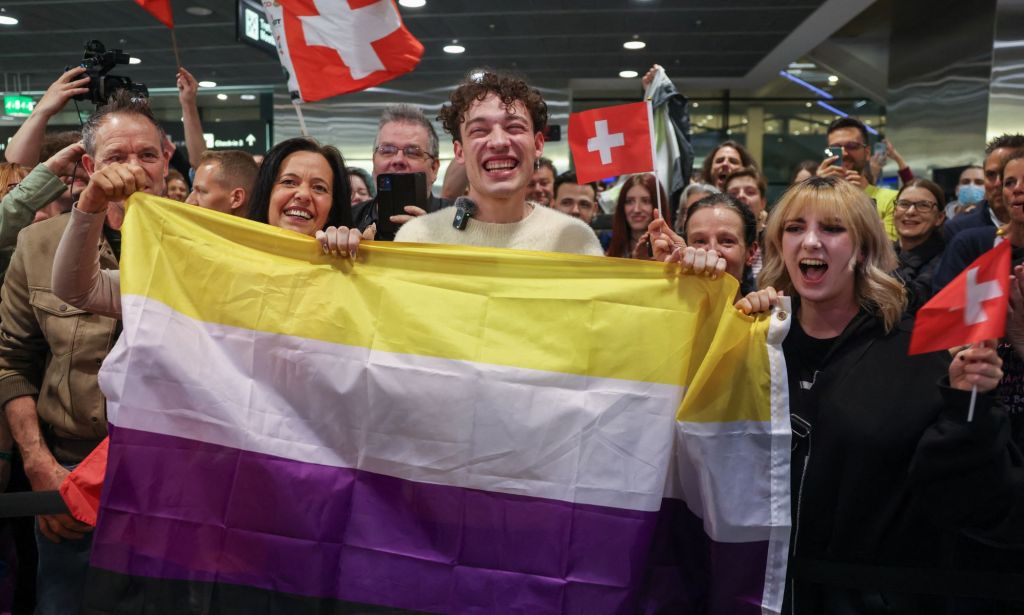Eurovision winner Nemo says non-binary flag wasn’t allowed in arena: ‘Did it anyway’

Eurovision 2024 winner Nemo. (Getty)
Nemo, the first non-binary winner of the Eurovision Song Contest, has said they had to “smuggle” their non-binary flag into Saturday’s Grand Final after alleging that it wasn’t allowed in the arena.
Switzerland’s Nemo stormed into first place at the contest over the weekend (11 May) with their song “The Code”, which is about Nemo realising and accepting their non-binary identity.
During one of the standout moments from an otherwise controversy-marred contest, Nemo appeared on stage to represent their country holding a white, yellow, black and purple flag – also known as the non-binary flag.
Yet speaking at a press conference after their historic win, the 24-year-old singer blasted the European Broadcasting Union (EBU), the organisers behind Eurovision, saying that they had to “smuggle” their non-binary flag into Malmö Arena.

Asked about reports that fans had been barred from bringing non-binary flags into the arena, Nemo branded it “unbelievable” and suggested that the EBU had a “double standard”.
“I had to smuggle my flag in because Eurovision said no, but I did it anyway, so I hope some people did that too,” they said. “But, I mean, come on, this is clearly a double standard.”
After Nemo won the contest, the official Eurovision Song Contest social media accounts shared a photo of them along with the caption “non-binary finery”.
Nemo also revealed that they broke their trophy after being handed it, and used the opportunity to make a dig at the controversy that enveloped the contest this year.
“The trophy can be fixed – maybe Eurovision needs fixing a little bit too, every now and then,” they said, to a round of applause in the audience.
This year, Eurovision faced extensive calls for a boycott after the EBU refused to prevent Israel from competing in the contest, amid the country’s ongoing war with Hamas.
Figures released after this year’s contest show that around 25 per cent less Brits watched Eurovision this year compared to last, suggesting that the boycott succeeded in part.
Hours before Eurovision was set to begin, tension at the contest reached new levels when the Netherland’s act Joost Klein, a favourite to win, was disqualified following an alleged verbal altercation between him and a female production crew member.
Meanwhile, Ireland’s non-binary star Bambie Thug expressed that their wish to include pro-Palestine messages as part of their staging was declined by the EBU.
After the contest, Bambie let their frustrations with the EBU out, telling a reporter: “I just want to say we are what the Eurovision is. The EBU is not what the Eurovision is. F**k the EBU, I don’t even care anymore. F**k them.”
Nemo, too, suggested dissatisfaction at how the EBU had handled Israel’s inclusion in the contest, telling reporters that it was an “intense” experience for the artists.
They explained that their “whole experience was really intense, and not just pleasant all the way,” adding: “There were a lot of things that didn’t seem like it was all about love and unity, and that made me really sad.
“And at the same time … there was so much love here as well.”
How did this story make you feel?

